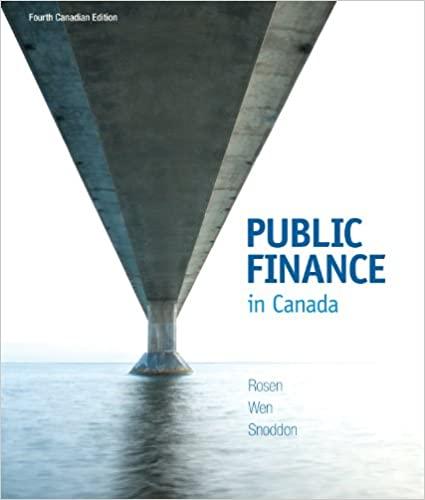Question
If you borrow $35,000 for 12 years and pay 8.9 % interest compounded every instant, then the amount you owe at any time t (in
If you borrow $35,000 for 12 years and pay 8.9 % interest compounded every instant, then the amount you owe at any time t (in years) after you borrow the $35,000 plots out like this: 35000.*E^(0.089*t)
A friend tells you about a deal a second bank is promoting. The deal is that you pay: -> 9.9 % interest for the first four years, -> 8.9 % interest for the second four years, and -> 7.9 % interest for the last four years. In each case the interest is compounded every instant. Notice that the interest rates average out to 8.9 % over the four years. But your friend tells you that the second deal is better than the deal you got because the high rate 9.9 % is applied when the balance is small and the low rate 7.9 % is applied when the balance is high.
Set up a function r[t] so that balance2[t] , the balance for the second scheme t years into the loan, solves the differential equation balance2'[t] = r[t] balance2[t] with balance2[0] = 35000 . Use NDSolve to help get a plot of balance2[t] for 0 <= t <= 12 . Show this plot with the plot above and answer the question: Which is the better deal? Why do you think the second bank is pushing this deal?
Step by Step Solution
There are 3 Steps involved in it
Step: 1

Get Instant Access to Expert-Tailored Solutions
See step-by-step solutions with expert insights and AI powered tools for academic success
Step: 2

Step: 3

Ace Your Homework with AI
Get the answers you need in no time with our AI-driven, step-by-step assistance
Get Started


